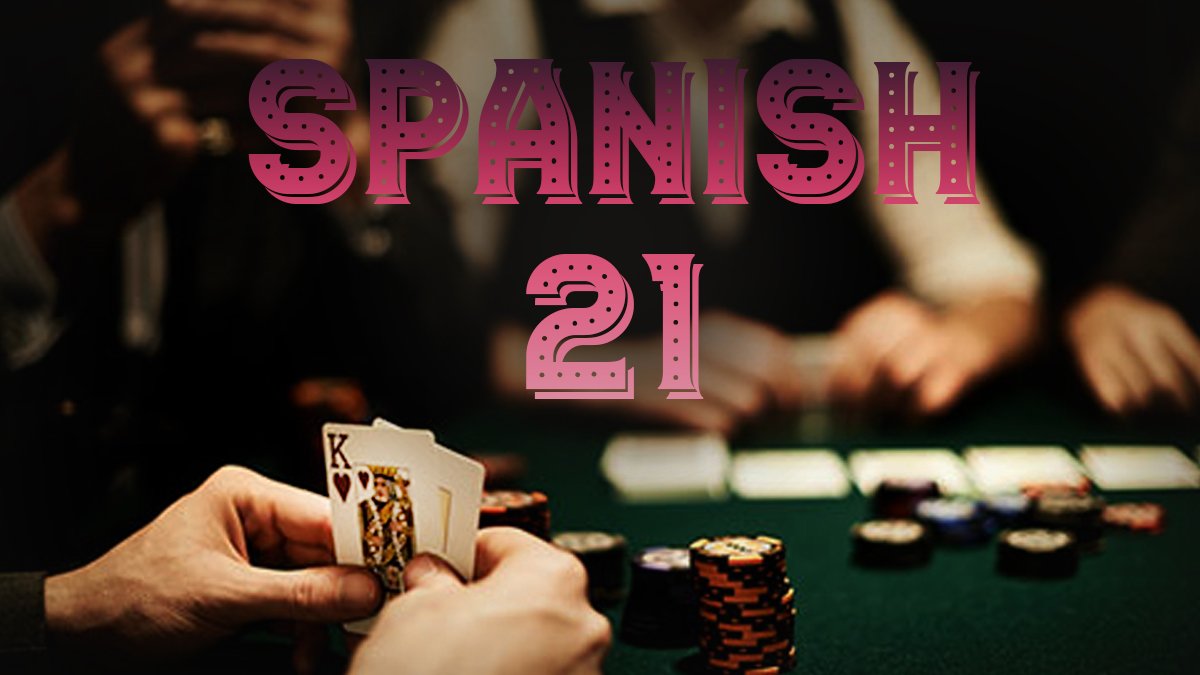Is Spanish 21 Better Than Blackjack
- Is Spanish 21 Better Than Blackjack No Deposit
- Is Spanish 21 Better Than Blackjack Rules
- Spanish 21 Blackjack Strategy
Spanish 21 is one of the most popular variations of blackjack in the world and is played widely in casinos. While the differences can make the game a bit more complicated, they also influence the odds of winning.

To a normal person, Spanish 21 and blackjack may seem like the same game with different names. However, there are a number of different advantages and disadvantages each game offers through different sets of rules.
- Best Casino for Live Dealer Games
- Accepts all Countries and US States

Spanish 21 is a blackjack variant owned by Masque Publishing Inc., a gaming publishing company based in Colorado.Unlicensed, but equivalent, versions may be called Spanish blackjack. In Australia and Malaysia, an unlicensed version of the game, with no dealer hole card and significant rule differences, is played in casinos under the name 'Pontoon'.It was first introduced about 1995. Luckily, it isn’t too hard to find strategy charts for Spanish 21 online, and that is a much better option than either trying to memorize the correct plays or figuring it out as you play. This is an especially smart idea in this game, because the odds are sometimes even better than in standard blackjack, with house edges of less than 0.5%.

Spanish 21
Spanish 21 is played on the same traditional table as its counterpart, but it offers the player plenty more options than traditional blackjack; however, these options come at a price.
Giving the player more options to win would typically reduce the house edge, but casinos have found a way to combat that. Rather than playing with the traditional 52 card deck, they remove the four 10 cards, leaving the deck with only 48 cards. Any experienced gambler can tell you that removing 25% of the cards with a face value of 10 will influence your odds negatively.
Is Spanish 21 Better Than Blackjack No Deposit
Spanish 21 Rules:
Is Spanish 21 Better Than Blackjack Rules
Although the rules for Spanish 21 can vary at different locations, they are typically as follows:
- Late surrender is allowed- If the dealer does not have a blackjack, the player may surrender and receive half of their bet back. Unfortunately, they also forfeit their ability to keep playing.
- Double after split is allowed- If the player ends up with two cards of the same value, he or she may “split” them to make two hands. Players are allowed to double their bet after splitting
- Re-splitting aces is allowed, as well as splitting in general up to four hands.
- A player 21 always wins- This is one of the most important advantages of Spanish 21. According to traditional blackjack rules, the house can beat a 21 if the number of cards in the dealer’s hand is fewer than in the player’s.
- Player blackjack beats dealer blackjack- In regular blackjack, this would be a push and would result in no winnings. However, in Spanish 21, this win results in a 3:2 payout.
- Player may double on any number of cards.
- Player may usually hit and double down after splitting aces-
- Player may surrender after doubling, known as “double down rescue”- The player forfeits an amount equal to his original bet. Essentially, he takes the double bet while forfeiting his original bet.

Spanish 21 Blackjack – Dealer’s Rule:
Most casinos offering Spanish 21 require that the dealer hit on a soft 17. Because of this, the house advantage is about 0.8%, which is worse than almost any other variation of blackjack.
In traditional blackjack, where the dealer stands on a soft 17, the house edge is only about 0.4%. This is definitely something to consider when deciding which game to play.

Spanish 21 Game Payouts:
The payouts in Spanish 21 are similar to blackjack, but there are a few more options if the player meets certain requirements.
Spanish 21 Blackjack Strategy
- A five-card 21 pays 3 to 2, a six-card 21 pays 2 to 1, a seven or more card 21 pays 3 to 1. This bonus is not honored after doubling or splitting.
- A 6-7-8 or 7-7-7 of mixed suits pays 3 to 2, of the same suit pays 2 to 1, and of spades pays 3 to 1. These bonuses usually do not pay after doubling or splitting, but some casinos allow it.
- Suited 7-7-7 when the dealer has a seven face up pays $1000 for bets of $5-$24 and $5000 for bets of $25 or over. In addition, all other players receive a $50 “envy bonus.” This bonus does not pay after doubling or splitting.
If you’re new to blackjack or are just learning the rules, trying to learn Spanish 21 simultaneously may not be your best bet. Trying to grasp all of the special rules and know how to work them to your advantage can make the game much more complicated. It would be best to learn the best strategies for traditional blackjack before moving on to any of its numerous variations.